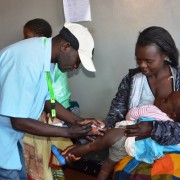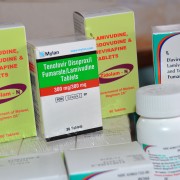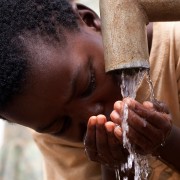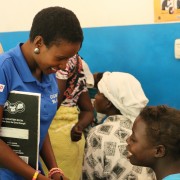
Malawi faces a range of challenges to sustainably finance and efficiently manage the delivery of high-quality health services. There is a severe shortage of adequately trained health personnel across all professional cadres, and it is difficult to train, retain, supervise, and manage existing workers within the health system. There are also critical gaps in supply chain management, information systems, and infrastructure.

USAID Malawi works with the Government of Malawi (GoM) to address health-related challenges such as HIV/ AIDS, malaria, and undernourishment. While the country now has access to some of the commodities that can help fight several of these national challenges, in many cases, the country struggles to get these resources to the people who need them.

Although substantial gains have been made in improving access to clean drinking water and sanitation facilities, Malawi still faces health issues in terms of water, sanitation, and hygiene. Poor practices surrounding transportation and storage of the water make waterborne illnesses, including cholera, common occurrences in Malawi.

Malaria is endemic in 95 percent of the country, with 98 percent of cases caused by the most severe form of the parasite. As a result, malaria is the leading cause of morbidity and mortality in children under five in Malawi, and the Ministry of Health (MoH) estimates that malaria accounts for 34 percent of all outpatient visits and 40 percent of all hospital admissions among children under five. Overall, one out of every four hospital deaths is attributed to malaria.

Over the last two decades, Malawi has made gains in most health indicators and it is one of only a few countries to have achieved Millennium Development Goal 4 for child survival ahead of the target year.








Comment
Make a general inquiry or suggest an improvement.